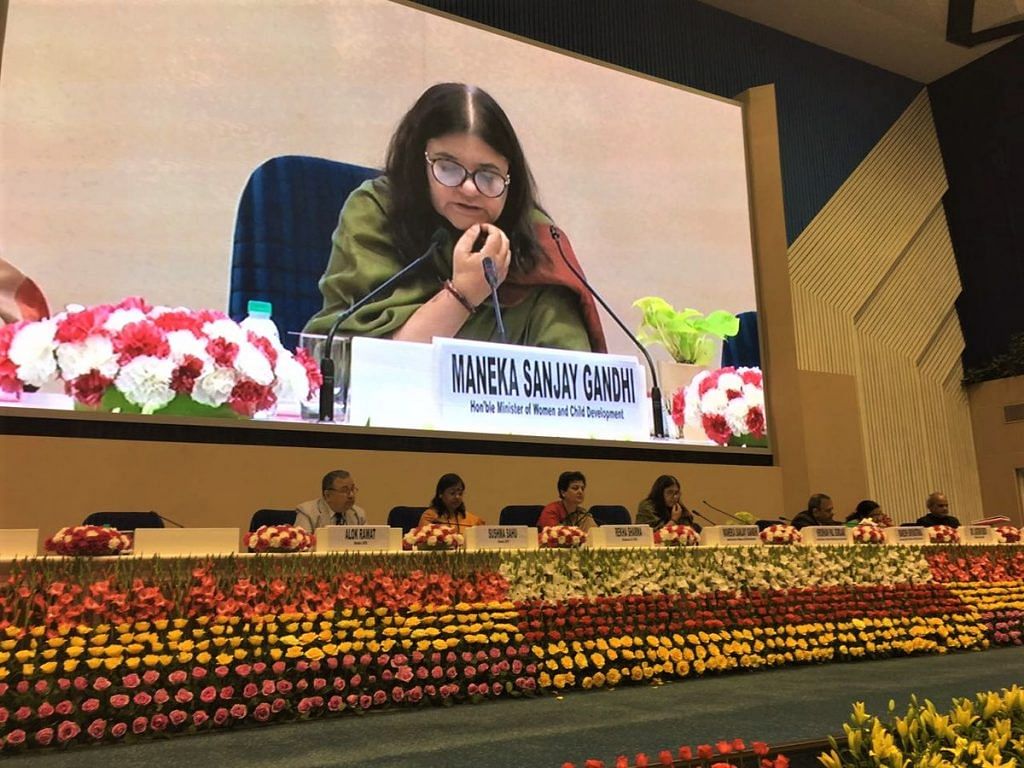Women and Child Development Minister’s statement is significant because activists have been highlighting that there is a pushback against women-centric laws.
New Delhi: Months after women’s rights activists said that the Supreme Court was diluting Section 498-A of the Indian Penal Code, Women and Child Development Minister Maneka Gandhi too seems to have joined the anti-dowry law hysteria, calling the law a “strange” one.
Speaking at the 25th anniversary celebration of the National Commission for Women Wednesday, Gandhi said the commission is actively working for the welfare of female prisoners who are denied any dignity the moment they become prisoners. Many of them are behind bars due to crimes they may have committed in self-defence, or because of the “strange 498-A, which puts even a husband’s relatives behind bars after a complaint is filed”.
Advocate Vrinda Grover argued that the minister was being critical of the criminal justice system as a whole. “The minister would be well aware that nobody is arrested under 498-A without conviction, which happens through a court of law… It’s not as though women file complaints in the police station, and the arrest immediately takes place,” Grover said.
Maneka Gandhi’s statement is of significance since activists have been highlighting for some time that there is a pushback against women-centric anti-dowry and anti-rape laws.
Last year, the Supreme Court issued a set of guidelines aimed at arresting a husband and his relatives for cruelty against his wife, in order to prevent the misuse of the anti-dowry law. While the apex court later said that it would reconsider its earlier ruling – without staying it – ThePrint reported that states are setting up family welfare panels aimed at examining domestic violence allegations despite the SC move to reconsider its order.
Moreover, last year, a senior bureaucrat in the government wrote to the WCD ministry, arguing that there is rampant misuse of women-centric laws, including Section 498-A, by women, and it must be checked.
Dismissing these fears, Grover said: “Cases of domestic violence – both mental and physical – continue to be very pervasive and widespread. It would be good if the WCD ministry could focus on changing these numbers (of cases of violence against women).”
